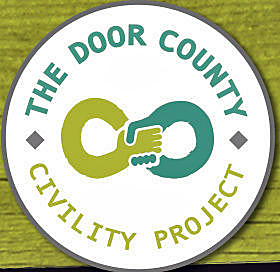Civility Column: It’s Not About You
- Share
- Tweet
- Pin
- Share

Q: I recently presented an idea for a project at a meeting of a service club I belong to. While I was talking, I noticed that most of the group members were nodding and liking the idea. One member obviously did not approve and gave me a steely stare. After I finished, he proceeded to deliver a withering critique of my ideas. As he talked, I felt the blood rise in my face and my heart race. All eyes were on me. I froze and left the meeting. I wish I had listened more carefully to the criticism; maybe he had a point. I really shut down because of his tone.
A: Really, who needs examples of incivility on the national stage when we have plenty of examples right in our own backyard? The situation you describe is a perfect example of the axiom, “It’s not just what you say, but also how you say it.” It is certainly difficult to listen and be receptive to criticism, valid or not, when it is delivered in a belittling and intimidating way.
Without an environment of mutual respect, the comfortable flow of ideas usually ends abruptly, as was your experience, or is reduced to a win-lose debate or even a one-person diatribe.
Your reaction to your co-member’s “steely stare” and “withering critique” of (your) ideas and approach is an example of the fight, flight or freeze response to a perceived attack or threat – in your case, the attack on your dignity and the threat of being humiliated or losing control.
This acute stress response is actually a physiological reaction of the body to defend and protect itself. The sympathetic nervous system releases a cascade of hormones, such as adrenaline, thus the flushing and racing heart, priming you to fight, flee or freeze.
Whether accurate or not, if you assess your co-member’s menacing behavior as something you can defeat, you go into fight mode. If, on the other hand, his behavior feels too powerful to overcome, your impulse is to run. The initial freeze response represents that paralyzing conclusion that you can neither fight nor flee, like a stunned deer in the headlights.
I appreciate that you wished you could have actually been able to listen to the criticism, recognizing that maybe your co-member had a point. Listening with an open mind is a vital tenet of civility. In the situation you describe and many like it, the key to staying fully present and “in charge of your faculties” is to eliminate the perceived threat your co-member is posing.
The absolutely best thing you can do for yourself is to learn not to take his belittling and intimidating behavior, or any uncivil behavior, personally. His behavior is a reflection on him, not you, even if his remarks are intentional and personal. Shame on him, not you. He is responsible for his behavior, and you are responsible for your behavior. Once you let his behavior be his problem, not yours, it loses its power over you. You no longer feel threatened by his uncivil behavior. You are able to stay fully in the moment, using your hormone-released emotions to listen, think and choose how to respond rationally, not defensively.
Now, achieving this truly empowering state of being can be easier said than done, especially if you happen to be overly sensitive to criticism. A lot of us have a longstanding habit of letting other people jerk us around. To break that habit, many people literally repeat to themselves, “It’s not about me; it’s not about me.” These same people consciously work to detach and separate themselves emotionally, becoming more an observer than participant. In this way, they objectify the situation, creating some space between the other person’s behavior and their own reaction. This space allows some room to decide how to respond.
I hope all this psychobabble makes sense to you, because learning not to take other people’s behavior personally has wide and far-reaching benefits. You will be far less prone to react defensively to rude behavior, thus doing your part to keep the door open to healthy dialogue. On a broader scale, you will be modeling civility by “being the change you want to see in the world” (Mahatma Gandhi). Good luck.
Have you witnessed a random act of civility or have a civility question? Let us know about it at [email protected].
 Susan McAninch is a retired clinical social worker and psychotherapist.
Susan McAninch is a retired clinical social worker and psychotherapist.


